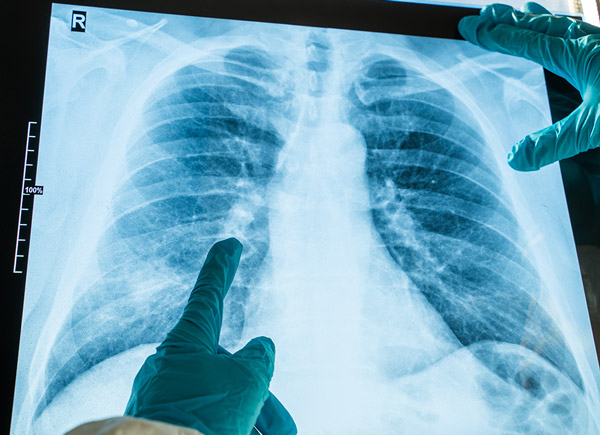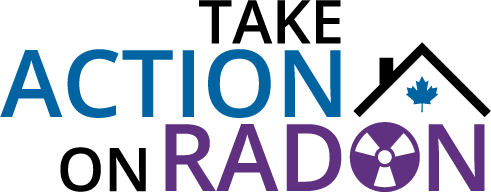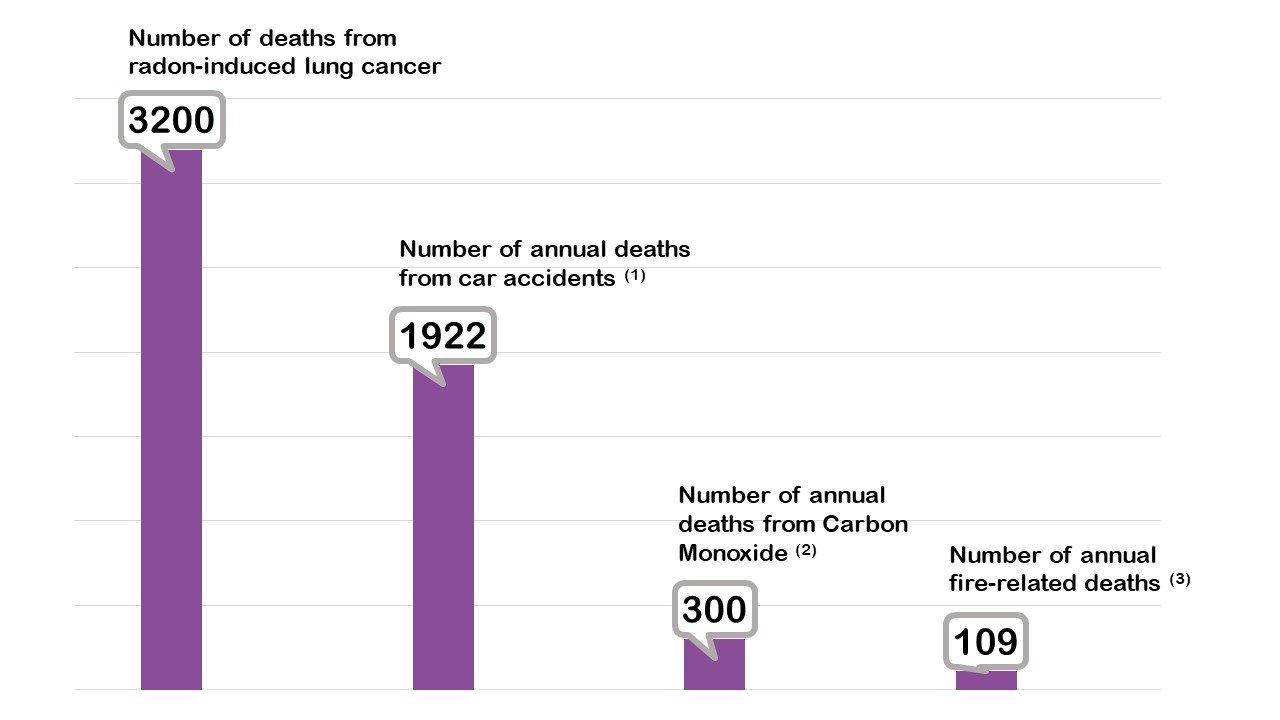Radon causes lung cancer.
Radon is a radioactive gas. When we breathe it in, we are exposing our lung tissue to ionizing radiation.
This radiation causes damage to the DNA in our lung tissue and can lead to lung cancer.

Radon causes lung cancer.
Radon is a radioactive gas. When we breathe it in, we are exposing our lung tissue to ionizing radiation.
This radiation causes damage to the DNA in our lung tissue and can lead to lung cancer.

How does radon compare to other health concerns?
Radon is a health concern that Canadian homeowners need to take seriously. Just as deaths from carbon monoxide, house fires, and car accidents can be reduced, so can deaths from radon exposure be reduced. All homeowners need to test their home to know if they are at risk, and reduce their radon levels if they are too high.
1 in 20 non-smokers who are exposed to a lifetime of high radon will die of lung cancer:

Radon puts non-smoker’s at risk for developing lung cancer. A person who lives in an exposure of 800 Bq/m3 has a 1 in 20 risk of developing lung cancer.
1 in 10 people who smoke and have NO exposure to high radon will die of lung cancer:

People who smoke without living in an elevated radon exposure have a 1 in 10 (2 in 20) risk of developing lung cancer.
1 in 3 smokers exposed to high radon will die of lung cancer:

But, for people who smoke, living in a home with high radon levels (lifetime average of 800 Bq/m³) greatly increases their chance of being diagnosed with lung cancer even further.


